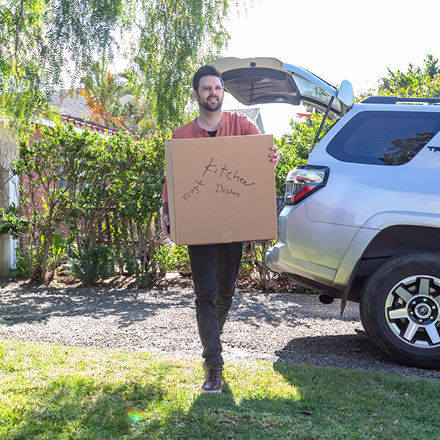- Insurance Guide
- Property Insurance
- Renters Insurance May Be Worth The Cost
Why renters insurance may be worth the cost

Let’s review what renters insurance is, what it may cover, who needs renters insurance, why it may be necessary, if renters insurance could be worth the cost and how to select coverage.
About renters insurance
Renters insurance helps protect your personal belongings in a rented home or apartment and could cover you against liability. Anyone who is renting may benefit from renters insurance. The coverage amount can vary based on personal preference. Depending on the state, a landlord or property management could require a certain amount of coverage. This requirement is usually stated upfront and before you move in.
When it comes to renters insurance coverage, personal items like clothing, electronics, furniture, and jewelry could be protected. Insurance for renters may also cover damage from accidents such as:
- Theft
- Fire or lightning
- Windstorm or hail
- Vandalism
- Accidental overflow of water
Depending on your policy, renters insurance could include coverage for temporary living expenses. This coverage could kick in when your living space is uninhabitable and provide coverage for hotel stays or other living accommodations up to the policy limit. Should you ever need to use this portion of your policy, make sure to include documentation such as receipts to file with insurance.
Why renters insurance could be worth the cost
Regardless of whether or not your future home requires renters insurance, there are many benefits to adding extra coverage.
- Designed to be affordable. Often, you can pay in one lump sum or spread it out in smaller payments over time. The cost of renters insurance varies depending on the state you live in.
- Could costs less than replacing your belongings out-of-pocket. Depending on your policy, your insurance could provide a cash value or replacement cost. Cash value factors in the age and condition of your damaged or stolen property. On the other hand, replacement costs may reimburse you for the full cost of a new item.
- May pay medical and legal bills if you or someone on your property is injured. Keep in mind, these are usually minor injuries that occur such as someone requiring stitches from bumping their head on a cabinet.
- Might be required by your landlord. In some states, if you’re renting an apartment, property managers may require renters to have a certain amount of renters insurance coverage.
- Bundling renters insurance with car insurance may help you save on costs in the future.
How much renters insurance do I need?
Follow these steps to determine how much renters insurance you could need.
- Write out a list of every piece of personal property including clothes, electronics, furniture, kitchenware, jewelry and other valuable items you own.
- Provide an estimated value per item or group of items as well as the date you bought them. It’s also a good idea to include receipts if you have them. Adding photos or videos is helpful if the items are stolen or damaged as it can help insurance determine the cash or cost replacement value.
- Confirm if your future property has coverage requirements. See if they have a mandatory minimum requirement. If they don’t, calculate your total values and check out the provider’s coverage limits.
Next steps
Renters insurance helps protect your personal property from damage or theft—and it could be more affordable than you think. Whether you rent a house or an apartment, explore coverage options to find out how much renters insurance might work best for your needs.



